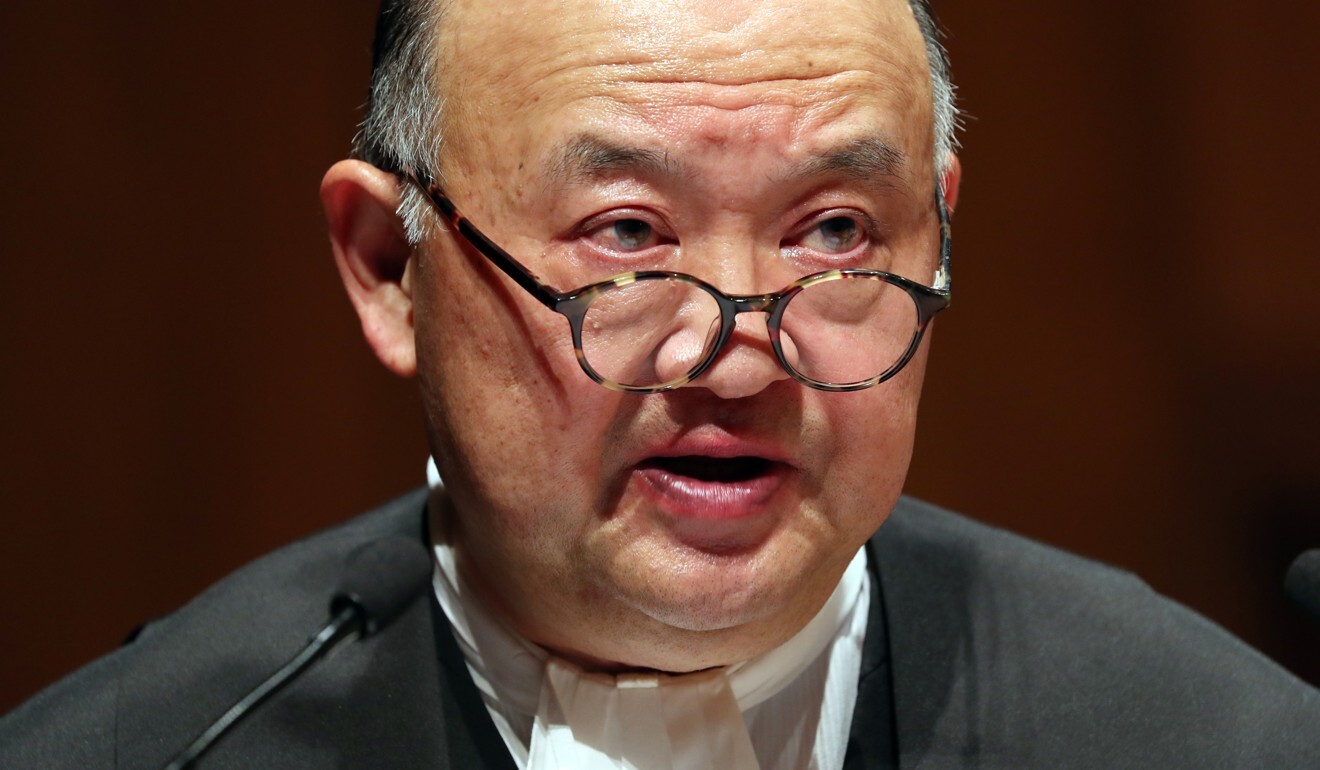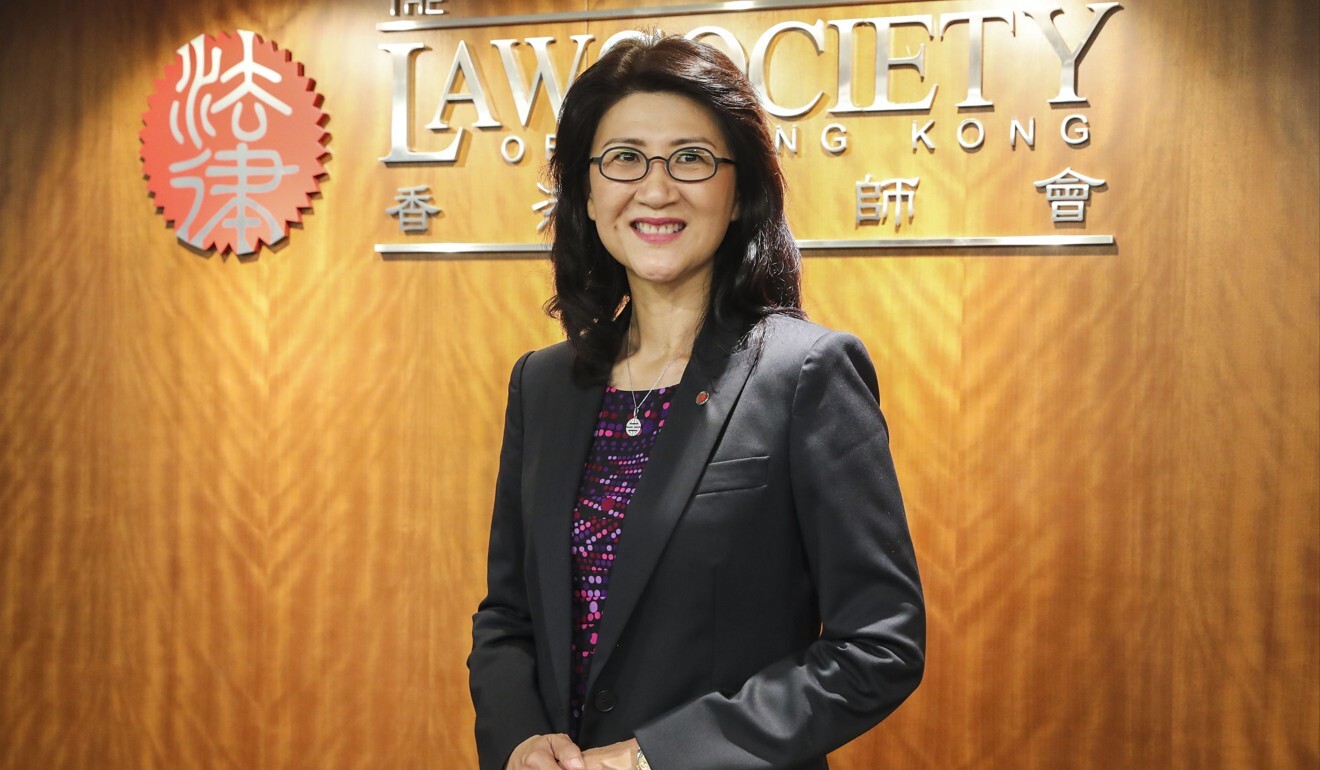
Hong Kong justice secretary defends independence of city’s judiciary after report of Beijing interference in legal system
- Secretary for Justice Teresa Cheng says city cannot allow any ‘misleading statements’
- Report anonymously quoted three ‘senior judges’ expressing concern over meddling in future judicial appointments

Justice minister Teresa Cheng Yeuk-wah has said Hong Kong’s top judge was the best person to confirm that mainland Chinese authorities did not interfere in the legal system, as she responded to a report questioning the city’s judicial independence.
Cheng said the independence of the judiciary, which is guaranteed under the Basic Law, was intact, adding that politics never came into consideration when it came to appointing judges.
In recent years years, there have been instances of Beijing expressing an opinion on high-profile cases of constitutional importance.
On Wednesday, Chief Justice Geoffrey Ma Tao-li issued a rare statement responding to a Reuters report, in which three unnamed “senior judges” expressed concerns that Beijing could meddle in future judicial appointments.

In his statement Ma said that, since becoming the city’s top judge in 2010, he had never “encountered or experienced any form of interference by the mainland authorities”.
Cheng, without directly naming the Reuters report, waded into the debate on Friday.
“I believe responsible media will verify the facts before reports are published, and professionals should make remarks based on facts,” she said.
“The independence of the judiciary is the cornerstone of our legal profession. We cannot allow any misleading statements. And nothing is better than the direct evidence of the chief justice himself, telling us that there is no such interference.”
She said appointments of local judges were based on their professional abilities, and a dedicated committee, involving representatives from the Bar Association and the Law Society, was part of the process.
“There will not be any political considerations in appointing judges,” she said.

On Thursday, Law Society president Melissa Pang said public confidence was essential to a functioning legal system, and the public should not be “chasing the wind and clutching at shadows” – a reference to a Chinese proverb about interpreting speculation.
Henry Litton, a former permanent judge of the Court of Final Appeal, also attacked the Reuters report, which claimed Ma had to contend with Beijing’s view that “the rule of law ultimately must be a tool to preserve one-party rule”.
He said the mention of one-party rule “put a slant” on the story which he felt was used to imply that the Chinese ruled “one country, two systems”.
“Words reflect thoughts and subconscious bias,” Litton said. “It is inconceivable that the chief justice would have such insensitivity to the policy of one country, two systems, and such bias against the form of government in the mainland as the remark, reportedly made by him, implies.”
Separately, Cheng declined to comment on whether the Department of Justice (DOJ) was looking into accusations that opposition lawmaker Dennis Kwok had violated his oath of office.
Kwok has come under fire from the State Council’s Hong Kong and Macau Affairs Office, and the central government’s liaison office in the city, for delaying the election of a chairman for the Legislative Council’s House Committee through filibustering.
Both offices suggested Kwok had committed misconduct.
Under Hong Kong’s criminal system, the prosecution has to prove the public official committed serious misconduct and “wilfully neglected or failed to perform his duty”. Kwok’s supporters have argued that was a high threshold in the context of filibustering, an accepted political tool available to opposition lawmakers for delaying legislation they disagree with.
“The DOJ is not going to comment on any specific acts, especially acts that are now under the scrutiny of certain investigations [of] law enforcement,” Cheng said.
“We don’t know what is happening, so it would be inappropriate for me to comment on any specific case.”